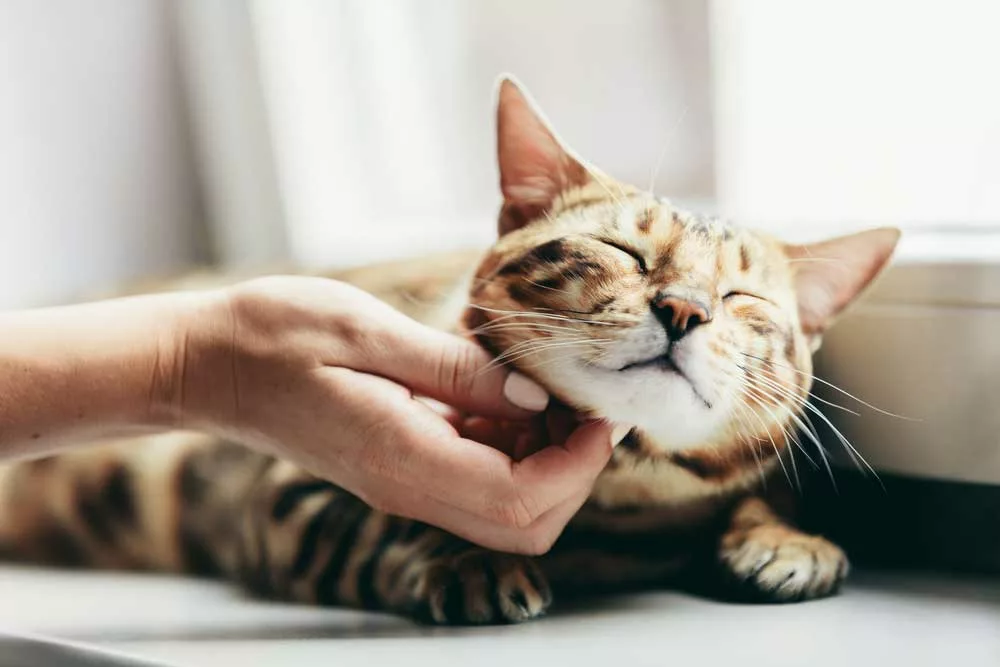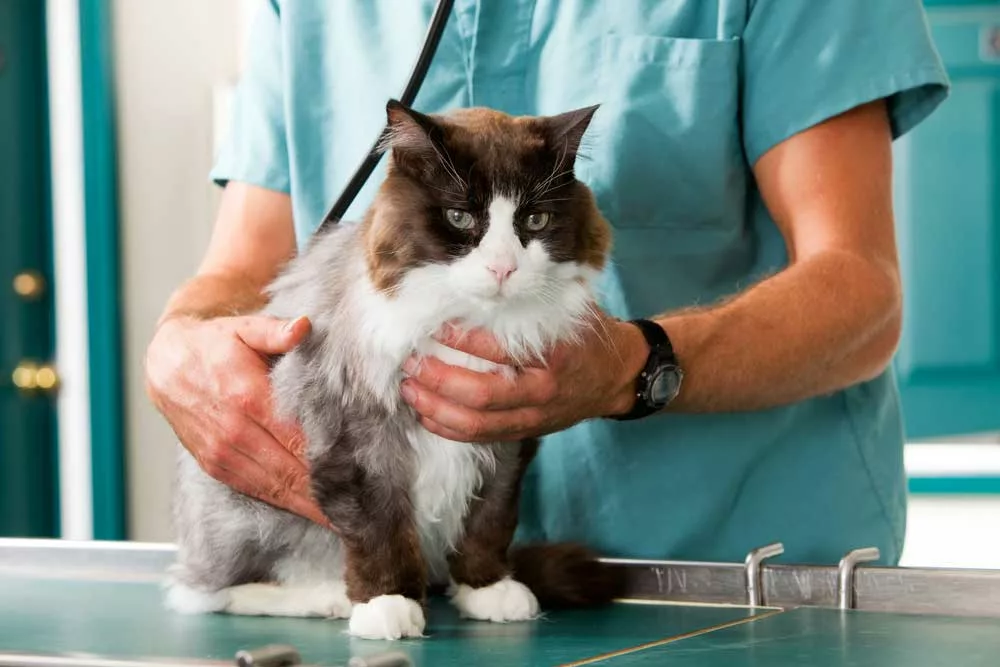If you have ever owned a cat, you know that they tend to be playful and loving. However, some pet lovers can also find cats to be unpredictable. They can display antisocial behaviors like being aloof, running away, avoiding contact with you, etc. This article outlines why sometimes your cat doesn’t like being touched on the back.
Table of Contents
- Why Don’t Cats Like Their Back Touched?
- What Causes Back Pain in Cats?
- How to Recognize Back Pain In Cats
- My Cat Doesn’t Like to be Touched Back: What to Do
- Conclusion
Why Don’t Cats Like Their Back Touched?
In most cases, friendly cats prefer you to caress them around specific areas of their bodies. Generally, this can be under the chin or ears and close to their cheeks.
These areas their facial glands are in, and they favor these sections much more than their belly, the base of their tail, or the back area.

(A cat enjoying stroking under the chin)
What Causes Back Pain in Cats?
While most would rather you stroke them in areas other than the back, they don’t particularly hate it. That’s until they’re suffering from back pain due to any of the following reasons:
Arthritis
It is a painful joint condition that can cause problems in the spine. Cats that suffer from arthritis may sometimes have a stiff back and neck.
Soft Tissue Injuries
It refers to a sprain or strain in the ligaments, tendons, or muscles around the backbone. A cat that has experienced a soft tissue injury may seem stiff and flinch whenever stroked.
Fear and Anxiety
If you discover that your cat constantly flinches whenever you touch its back, then one of the possible reasons could be fear or anxiety.

(Image of fearful cat)
Hyperesthesia
Hyperesthesia is a hypersensitivity disorder caused by a disorder in the peripheral nerves due to damage or disease. These nerves are outside the brain and spinal cord. As a result of the disorder, the cat’s back ripples.
Feline Osteodystrophy
Osteodystrophy is abnormal bone growth due to renal disease or calcium and phosphorus imbalances due to metabolism disturbances. The condition makes a cat stiff and reluctant to move.

(A sick cat)
Discopondyitis
Discospondylitis s a microbial or fungal infection of the spinal discs. The disease can occur at one point in the spinal column or multiple spots. It causes severe stiffness.
Meningitis
Meningitis is inflammation or infection of the meninges. These are membranes surrounding the brain and spinal column. Although the disease causes stiffness primarily in the neck, the cat will also resist you touching it on the back.

(The vet is examining the cat)
How to Recognize Back Pain In Cats
While your cat might not shed much or become lethargic, here’s how to tell your cat has back pain:
Rippling
It is when the skin on the cat’s back involuntarily twitches or ripples every time you touch it, especially on the back.
Stiffness in the Back or Neck
It is a situation where the cat cannot stretch out fully or move quickly.
Flinching
The cat recoils itself the moment you touch its back.

(Sleeping kitten)
My Cat Doesn’t Like to be Touched Back: What to Do
Touching or holding your cat when it doesn’t feel like it and wants to be alone may result in it exhibiting aggressive behaviors.
According to most professional cat handlers, the best approach you can use to gain the affection of your pet is not to persist with forced interactions. On the contrary, you should encourage your cat to come to you.
So avoid touching, stroking, cuddling, or holding them against their will. Greet your cat when you encounter them and allow them to choose to communicate with you.

(Image of cat exhibiting aggressive behavior)
Conclusion
Like humans, every cat has a unique personality. So if a cat resists your touching it, you need not feel bad about it, as that’s likely just part of the cat’s natural behavior.
Also, while cats are generally friendly creatures, they may not be welcoming to every person they interact with. Sometimes, they need time to build trust in you or the person engaging with them.
In addition, there’s the chance that your cat is suffering from any of the conditions mentioned above. But the good news is, more often than not, the cat will eventually warm up to you and others. Just be patient and show them love.
